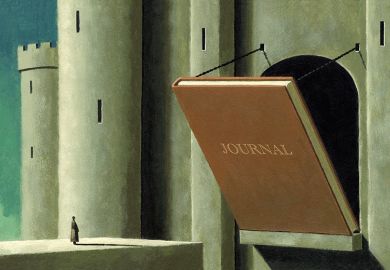In the mind’s eye, library collections conjure images of row upon row of books, from the latest novels to valuable, leatherbound first editions and irreplaceable historic publications yellowing with age. So-called special collections, including primary source material and archives of particular historical value, have always been harder to access due to their rarity, high value or fragility.
Physical resources will always be important, but in today’s online world, visibility and discoverability are most important and publishers are increasingly digitising analogue collections of texts, images and audio-visuals held in libraries to make them available for scholars and students.
Publishers know all too well that digital access offers great advantages and capitalise on the accessibility of their digitised collections by charging libraries for the content itself as a one-off cost, rather than a yearly subscription. However, they then often charge again for continued access to that content on their own delivery platforms through yearly “platform” or “hosting fees”.
A recent Jisc survey of senior librarians and collection managers at 67 institutions reveals that 42 per cent spent on average up to £100,000 or more over the past five years on one-off purchases from publishers; platform fees ranged from up to £5,000 to more than £15,000 per year, and the majority of institutions felt that the platform/hosting fees they were charged were not very good value for money.
These digital collections are typically bought by research libraries and teaching-focused higher education institutions as one-off perpetual purchases, but there’s a catch: most licences don’t state that the fees will increase over time and HEIs find that they often do so erratically.
Institutions may be unable to gain access to content, even after forking out for a digital collection, without incurring extra costs. Having to pay unexpected ongoing fees puts strain on stretched resources.
The Jisc survey also reveals widespread discontent with the lack of transparency around these charges. As one of the respondents put it: “Some hosting fees seem set at a reasonable nominal rate while others can charge thousands while offering little in the way of updates to the resource. The business reasons for the charges are often not made clear.”
Another problem is multiple access charging. HEI libraries are charged per collection, which means that those with more than one collection on the same publisher’s platform can be charged several times.
Of course, libraries could consider refusing to use certain platforms, but it’s hard to justify cancelling access to a collection that has cost significant money. And they have already paid the one-off cost for acquiring the collections in the first place, so that investment would be lost.
Another area of concern relates to charges made by publishers to enable data-driven research of these collections. Publishers are supposed to enable text and data mining (TDM), but there is currently no standard approach to how TDM is facilitated and they will often apply charges to provide access to the data sets that institutions have already purchased.
One respondent commented: “We have been charged by one publisher for data to be sent to us on a hard drive in order for a user to carry out TDM on a newspaper archive that we had already purchased.”
An added problem is that libraries are not always aware of the level of TDM activity that takes place at their institution, as requests for data sets to publishers are often made by researchers directly to the publishers, thus bypassing the library.
According to the survey, 89 per cent of respondents have either never conducted data mining on their collections, or do not know if this has taken place. If libraries don’t have full visibility of the requirements for TDM in their institutions, they can’t support researchers adequately.
In response to members’ concerns and to support institutions with the purchasing of digital collections, Jisc has set up a new service, the digital archival collections group purchasing scheme, which has transparent pricing and aims to drive down costs.
Higher education institutions collectively benefit from lower prices for digital collections based on the simple market principle: the more products that are purchased from a publisher, the lower the price for those participating. There is no need to negotiate because prices have been Jisc-banded to allow all members to participate, and there are no recurrent platform fees.
Jisc is also working with our members on a set of principles that will help guide purchase agreement negotiations for digitised collections. We have put together the top six things to consider when negotiating such a deal:
1. Make sure that publisher agreements provide price transparency on all the costs associated with one-off purchases, including any recurrent annual hosting fees.
2. Agree price rises for ongoing charges. Fees should undergo only a moderate increase to reflect genuine developments in the service.
3. Ask publishers to agree to “bundle” recurrent annual hosting fees within the one-off purchasing price.
4. Where content is added to a collection on a platform, costs should be available as a top-up purchase, not a hosting fee arrangement.
5. All digitised public domain materials should ideally be released into the public domain after any exclusive licence period has been agreed between a publisher and an HEI.
6. Ensure that text and data mining is an integral part of any digital collection purchasing deal.
Peter Findlay is digital portfolio manager at Jisc.
Register to continue
Why register?
- Registration is free and only takes a moment
- Once registered, you can read 3 articles a month
- Sign up for our newsletter
Subscribe
Or subscribe for unlimited access to:
- Unlimited access to news, views, insights & reviews
- Digital editions
- Digital access to THE’s university and college rankings analysis
Already registered or a current subscriber? Login




